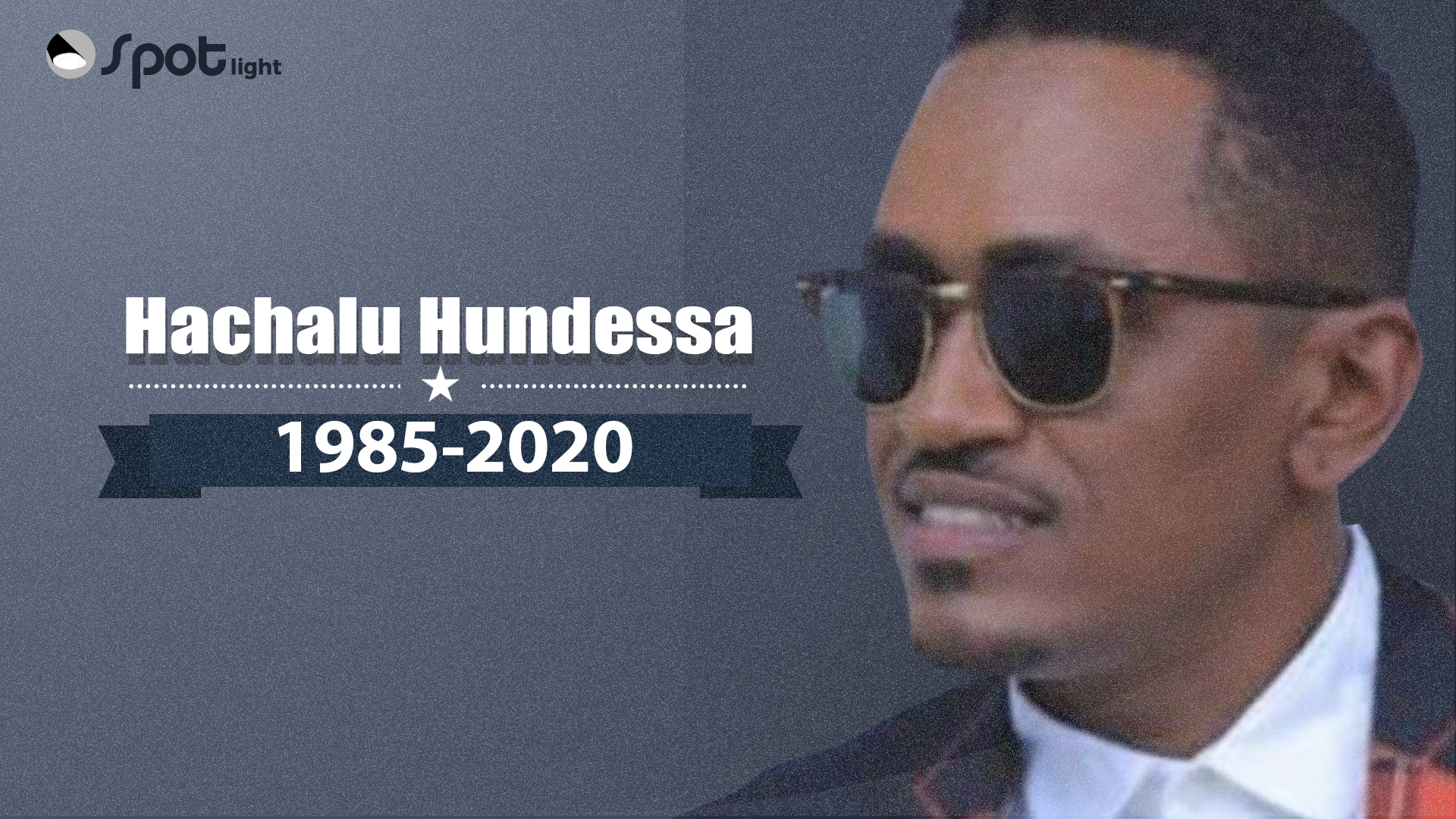
Image via Ethiopia Observer.
Image via Ethiopia Observer.
"Do not wait for help to come from outside… rise, prepare your horses and fight, you are the one close to the palace," Ethiopian pop star Hachalu Hundessa, who was shot dead by unidentified assailants in Addis Ababa on June 25, sang these lines in 2017 to his Oromo fan base, who historically picture themselves as brave warriors and horsemen.
The murder was followed by week-long violent clashes between his angry supporters and federal forces across Oromia region state and other Ethiopian cities, leaving over 200 dead and 3,000 arrested including prominent opposition leader and media mogul Jawar Mohammed, who coined the term "Oromo first" in 2013.
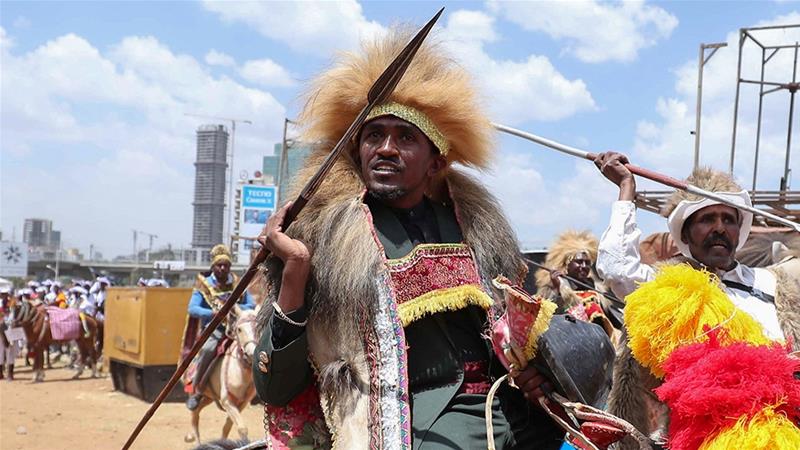
Hachalu Hundessa rides a horse in traditional costume during the 123rd anniversary celebration of the Battle of Adwa where Ethiopian forces defeated the invading Italian forces, in Addis Ababa, 2019. /Reuters
Hachalu Hundessa rides a horse in traditional costume during the 123rd anniversary celebration of the Battle of Adwa where Ethiopian forces defeated the invading Italian forces, in Addis Ababa, 2019. /Reuters
Hachalu Hundessa – 'political musician' who sang his mind
Thirty-four-year-old Hundessa, who's survived by his wife and two daughters, came from a "very politically vital state of Oromia," according to Dr. Awol Allo, senior lecturer at UK's Keele University and specialist in Horn of Africa affairs.
"He was somebody who grew up singing while looking after cattle. But after he started school, particularly high school, he became politicized. He joined different clubs, which usually allow a distant kind of social space to students to organize and have conversation about politically important issues. He started singing at those clubs," Allo told CGTN Digital.

Hachalu Hundessa and his family. /Hachalu Hundessa Boonsaa via Facebook
Hachalu Hundessa and his family. /Hachalu Hundessa Boonsaa via Facebook
At age 17, Hundessa was arrested for participating in a protest and was imprisoned for five years. "That's where he actually honed his craft for art and music, that's where he wrote the lyrics and components to the melodies of this first album 'The Royalty' (Sanyii Mooti)," said Allo.
"I did not know how to write lyrics and melodies until I was put behind bars," Hundessa said in a 2017 BBC interview.
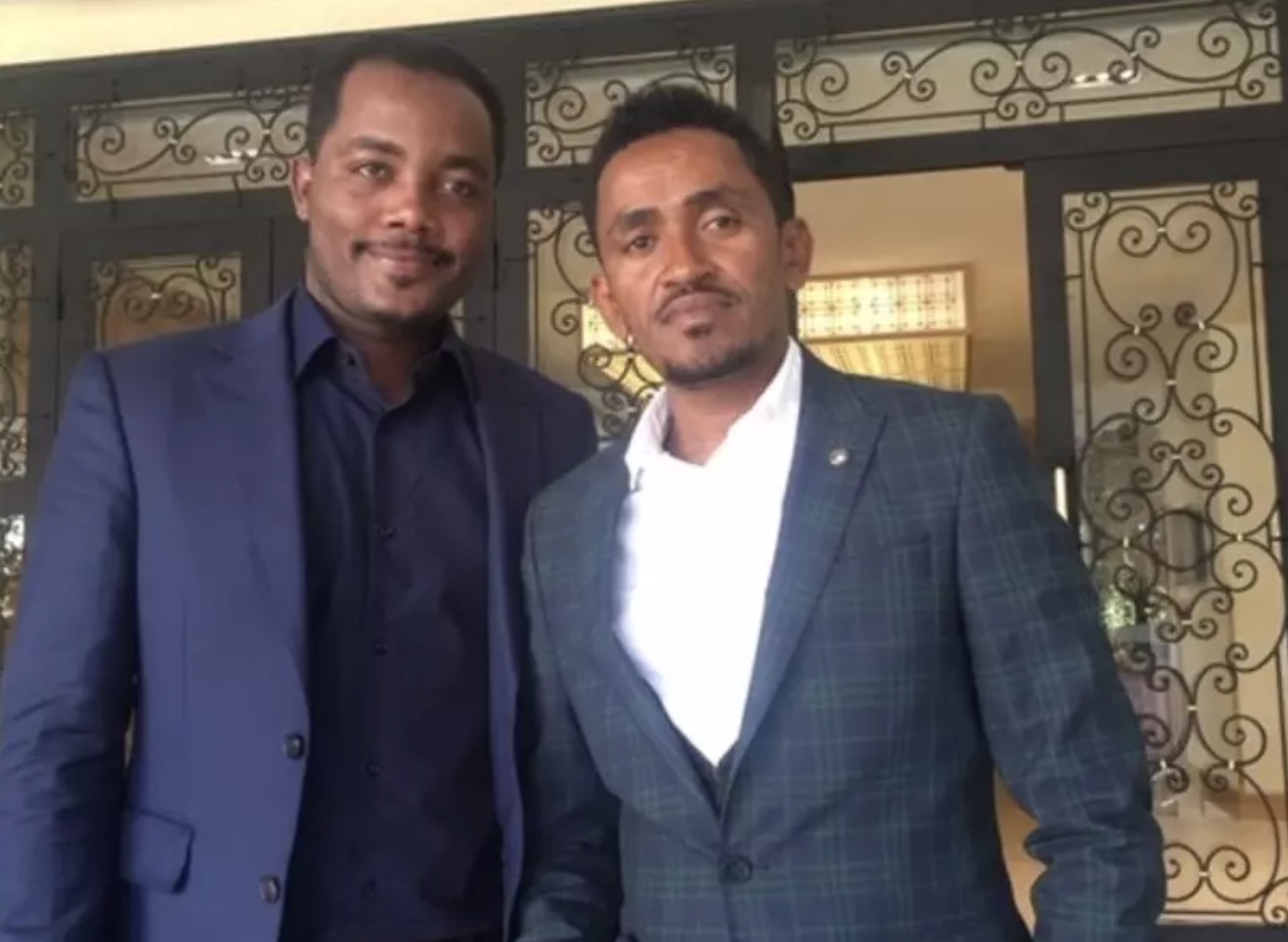
Awol Allo, senior lecturer at UK's Keele University and specialist in Horn of Africa affairs, with Oromo singer Hachalu Hundessa in January 2019. /Courtesy of Dr. Awol Allo
Awol Allo, senior lecturer at UK's Keele University and specialist in Horn of Africa affairs, with Oromo singer Hachalu Hundessa in January 2019. /Courtesy of Dr. Awol Allo
The music album, which he released in 2009, a year after he walked out of jail, instantly struck a chord with the Oromo people, turning him into an overnight youth sensation.
"Some of his songs were clearly political in its orientation, arguing for or advocating political change and reform in Ethiopia, some of them arguing more specifically for Oromo concerns, Oromo grievances and Oromo rights," said Kjetil Tronvoll, professor of Peace and Conflict Studies at Oslo's Bjorknes University College, while speaking to CGTN Digital.
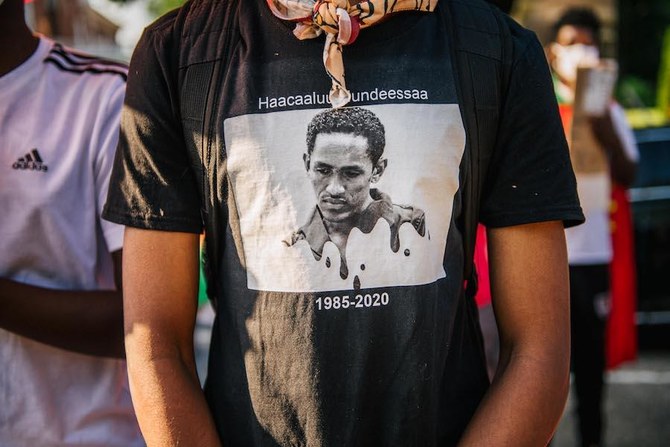
A member of the Oromo community participates in a rally at the Governor's Mansion, July 3, 2020. /AFP
A member of the Oromo community participates in a rally at the Governor's Mansion, July 3, 2020. /AFP
Hundessa's second album Waa'ee Keenya (Our Plight) became the best-selling African album on Amazon in 2013.
But his 2015 single "Maalan Jira?" (What existence is mine?) brought him into the political spotlight. The song became an anthem for the Oromo fighting against a government plan to expand capital Addis Ababa into Oromo farmlands.
"He helped galvanize the groundswell of movements from 2016-2018 or the Oromo protests that forced the then prime minister to resign and allowed the current prime minister to come to power," Allo said, adding "he spoke truth to power, sung truth to power, and had the distinct ability to read the political landscape and come up with a language and poetic expression that spoke to people in a way that no single artist has done in the past."
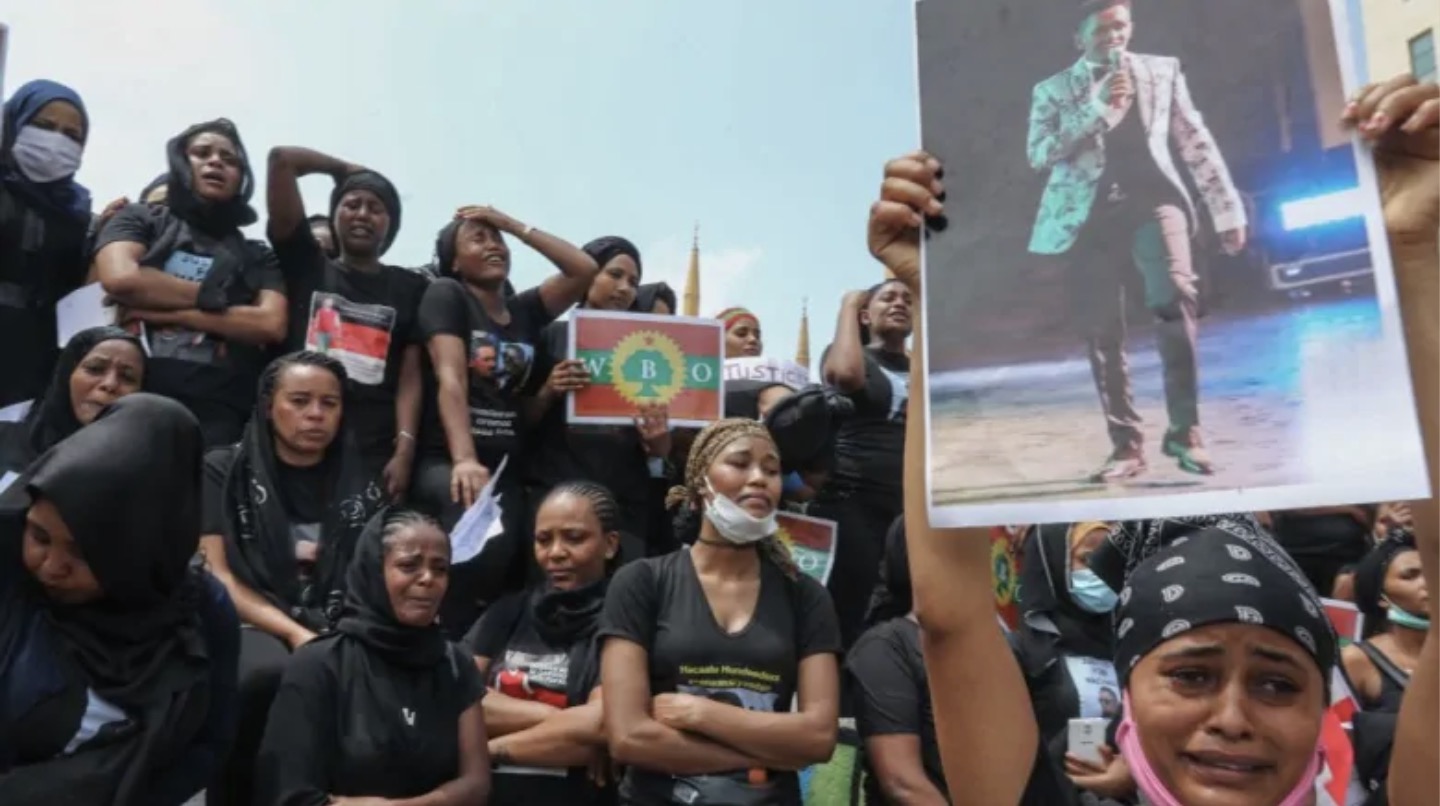
Members of the Oromo community take part in a demonstration to protest the death of musician and activist Hachalu Hundessa in Beirut, Lebanon, June 29, 2020. /AFP
Members of the Oromo community take part in a demonstration to protest the death of musician and activist Hachalu Hundessa in Beirut, Lebanon, June 29, 2020. /AFP
Experts say the icon's assassination has laid bare the old wounds of the Oromo community, the largest ethnic group in the country, which for long has accused subsequent governments of political isolation and oppression.
"What we see in Ethiopia today is not something which has spontaneously erupted. This is part of a long-term trajectory of politics in the country. The deeper grievances and a clash of political visions on what Ethiopia should be, what Ethiopia should contain, and how Ethiopia should move forward as a polity," said Tronvoll.
"Hundessa has become a symbol beyond himself… he in this context has been elevated to the position of a martyr for the Oromo-first cause and that is a rallying ground for those who argue for that policy, and hence you have the ensuing unrest after his tragic death."
While calling for "political and constitutional settlement of the outstanding political questions," Allo said the assassination has allowed the "underground grievances of the Oromo people to boil over."
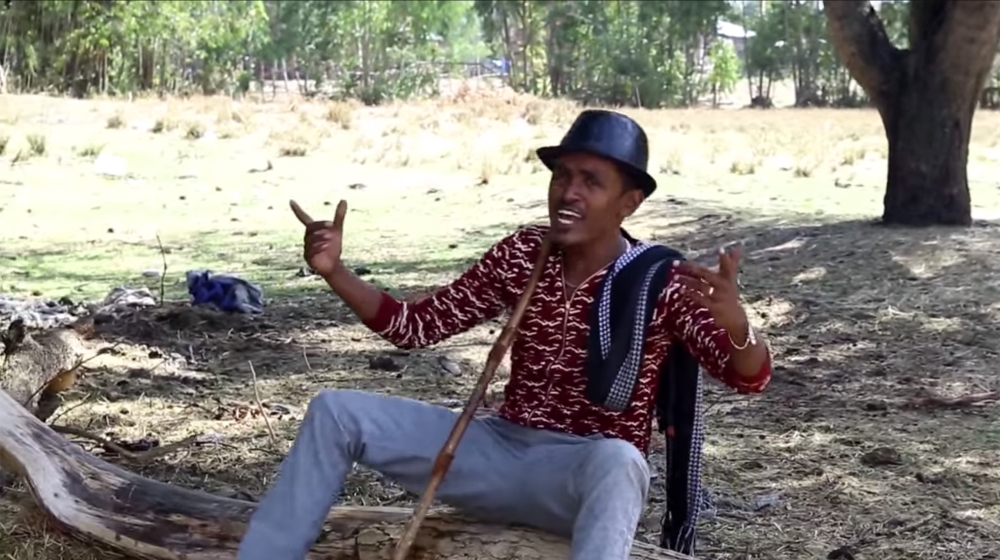
Musician and activist Hachalu Hundessa was shot dead by unidentified assailants in Addis Ababa, Ethiopia, June 25, 2020. /YouTube
Musician and activist Hachalu Hundessa was shot dead by unidentified assailants in Addis Ababa, Ethiopia, June 25, 2020. /YouTube
What's next for Ethiopia?
The Ethiopian government led by Abiy Ahmed, the country's first Oromo prime minister, and who received the Nobel Peace Prize in 2019 for restarting peace talks with neighboring Eritrea and initiating a "peaceful" transition to democracy, said "external forces were pulling the strings to stir a civil unrest."
While Ahmed's claims cannot be completely ruled out, many say the fastest growing economy in Sub-Saharan Africa has more complicated internal issues to tackle.
"Today, we certainly know about the competition and discord between Egypt and Ethiopia over the Blue Nile dam. Egyptian politicians have expressed an interest to even attack Ethiopia," Tronvoll pointed out.
But Allo believes "there might be forces in the region that would have the motivation and the interest to destabilize Ethiopia" but the current situation is not "purely external."
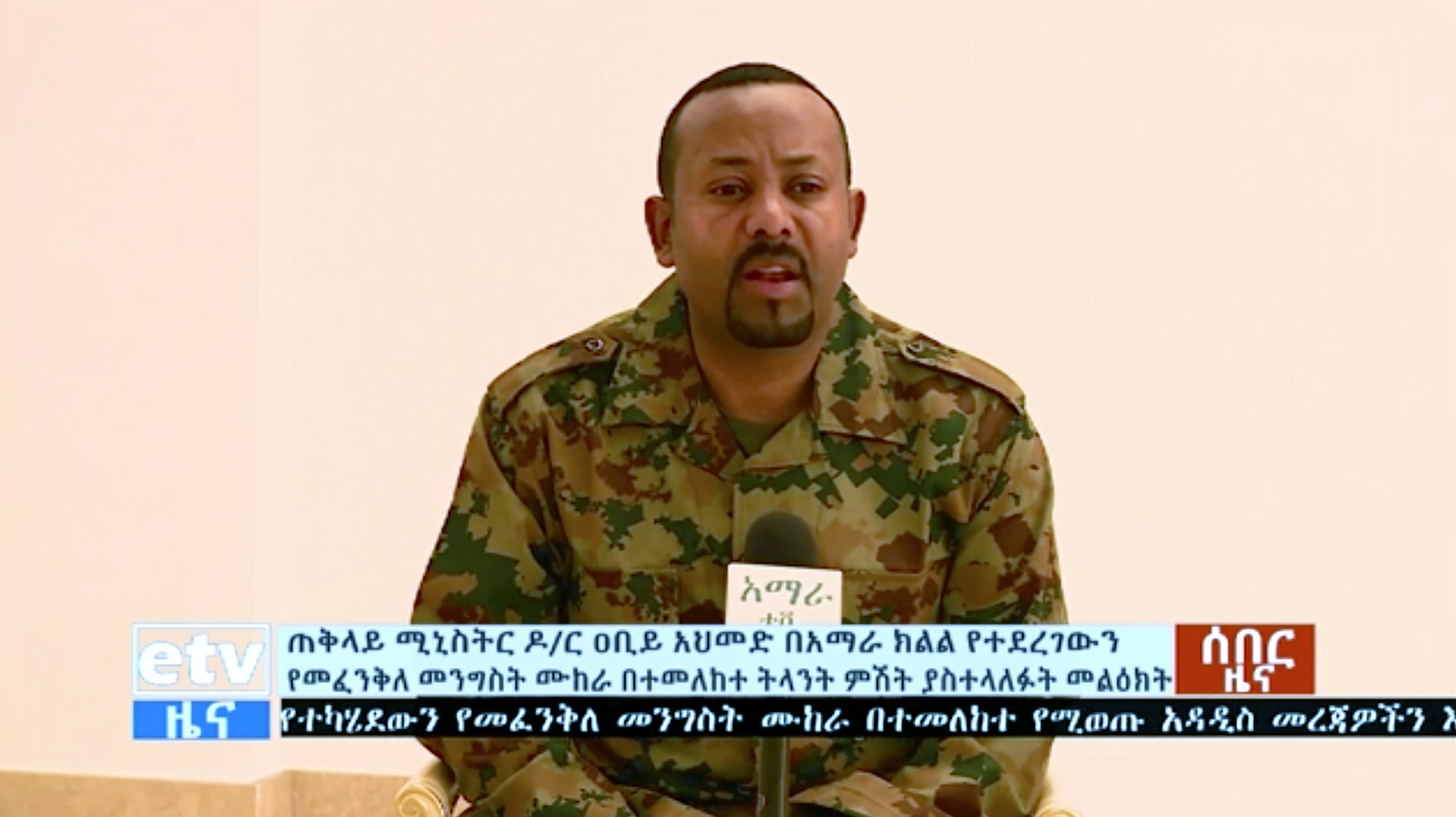
Ethiopia's Prime Minister Abiy Ahmed announces a failed coup as he addresses the public on television, June 23, 2019. /ETV via AP
Ethiopia's Prime Minister Abiy Ahmed announces a failed coup as he addresses the public on television, June 23, 2019. /ETV via AP
Read more: In The Spotlight: Abiy Ahmed - Ethiopia's 'miracle' prime minister
Ahmed's rise to power in 2018 was initially seen as a victory by the Oromo people, who demanded greater freedoms and better political representation at the federal level but the prime minister's endorsement of broader Ethiopian nationalism is now viewed by many in the community as betrayal.
"You cannot impose a particular conception of unity on a very diverse state," said Allo, adding "I think he did a very good job for the first eight months in office and then his priorities changed. So, while trying to unify the Ethiopian people is, theoretically speaking, a good thing, it's important to understand the deeper, structural tension that exists within that country, to understand the fault lines and the social cleavages that have been there for a long period of time, you cannot simply fix those by talking about, you know, love and reconciliation and peace. You need to seriously work on the need to address those deeper grievances."
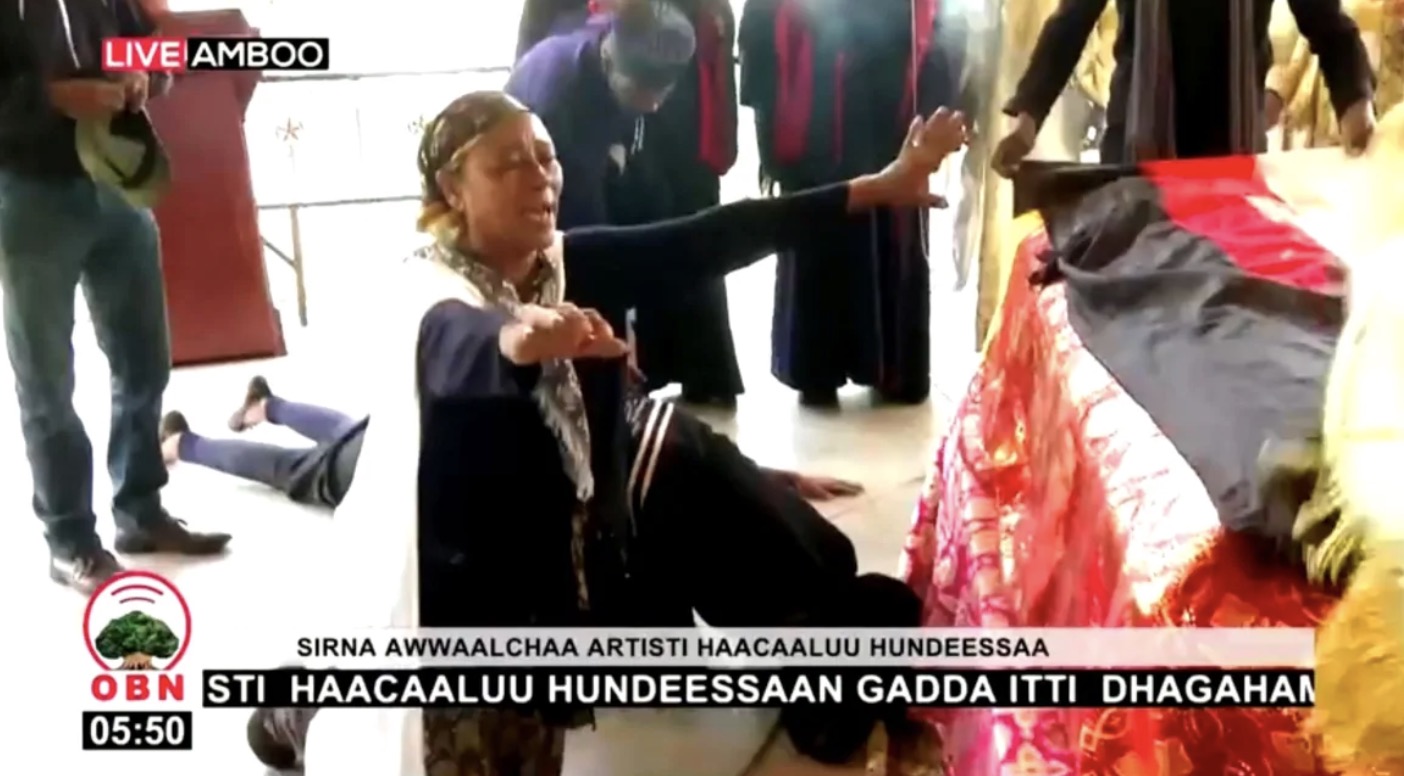
A woman reacts next to the coffin of Ethiopian musician Hachalu Hundessa during his funeral in Ambo, Ethiopia, July 2, 2020. /Oromia Broadcasting Network (OBN) via Reuters
A woman reacts next to the coffin of Ethiopian musician Hachalu Hundessa during his funeral in Ambo, Ethiopia, July 2, 2020. /Oromia Broadcasting Network (OBN) via Reuters
Ahmed relaxed restrictions for the press and civil society, and freed political prisoners and allowed the return of opposition voices in 2018. Experts feel the political reopening has posed bigger challenges for the Nobel laureate politician.
"It was a bold move certainly to invite everyone back. And some of us, myself included, was at that time, hesitant and skeptical and advised rather, that he should wait to invite all opposition back until he had stabilized a transition, basically until the 2020 election, because we knew from the very start that this would turn out to be a very fragile and very contested transition. And then to open hundred percent up and to invite everyone back even armed groups would be a liability to consolidate a sustainable transition. And yes, we see today that certainly the transition has been halted. It has even been reversed in some aspects," said Tronvoll.
The 2020 general election, earlier scheduled for August, has been postponed for at least nine months due to the ongoing COVID-19 pandemic. According to Tronvoll, Ahmed's Prosperity Party could "get a stiff competition" in the next election as "opposition groups are carving out a space for themselves and are recruiting, and rallying their base."